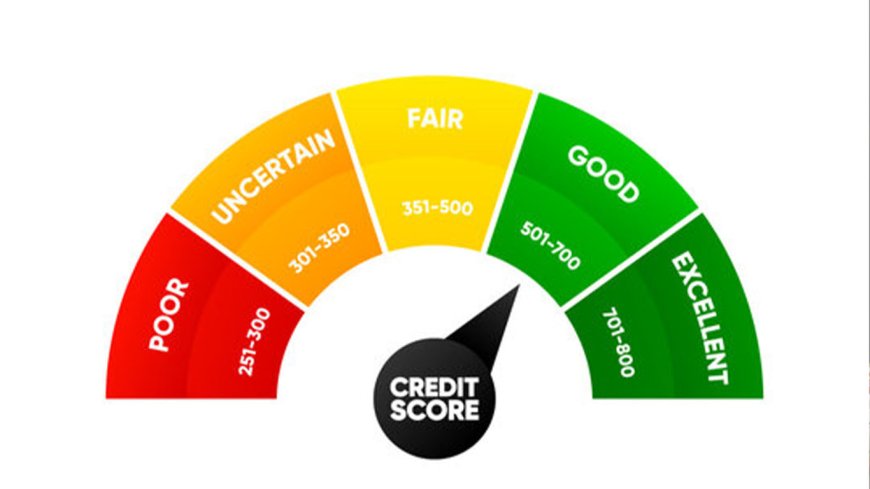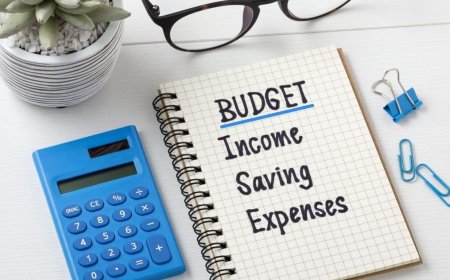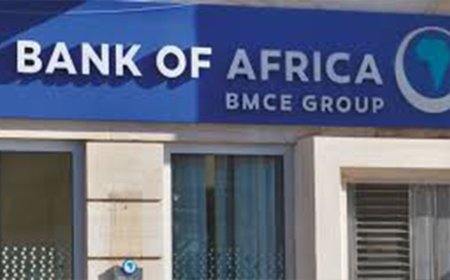How to Boost Your Credit Score in Uganda and Kenya: Ultimate 2025 Guide
Discover expert strategies to improve your credit score in Uganda and Kenya. This detailed guide covers checking your credit report, clearing debts, and building financial credibility for better loan approvals and lower interest rates.

Your credit score is a critical factor in your financial life in Uganda and Kenya. It influences your ability to secure loans, access credit cards, and even rent a home or land a job. A low credit score can lead to high interest rates or loan denials, while a strong score unlocks affordable financing and greater financial flexibility. If your credit score needs a boost, this comprehensive guide provides actionable steps to improve it in 2025, tailored specifically for Uganda and Kenya.
Understanding Your Credit Score
A credit score is a numerical representation of your creditworthiness, typically ranging from 300 to 900. In Uganda, the Credit Reference Bureau (CRB) compiles your credit history, while in Kenya, entities like CRB Kenya and the Kenya Bankers Association track your financial behaviour. A higher score signals to lenders that you’re a reliable borrower.
Key Factors Affecting Your Credit Score
- Payment History: Timely repayment of loans, credit cards, and bills is crucial.
- Outstanding Debt: The amount you owe across loans, credit cards, or overdrafts impacts your score.
- Credit History Length: Longer, well-managed credit accounts boost your score.
- Credit Mix: A variety of credit types (e.g., mobile loans, SACCO loans, credit cards) can enhance your credit profile.
- New Credit Applications: Frequent loan applications in a short period can lower your score.
Why Your Credit Score Matters
- Loan Approvals: A good score increases your chances of securing loans from banks, SACCOs, or microfinance institutions.
- Lower Interest Rates: Higher scores often lead to more affordable borrowing terms.
- Financial Opportunities: Access to credit cards, car loans, or business financing becomes easier.
- Non-Financial Benefits: Some landlords and employers in Uganda and Kenya check credit reports before approving rentals or job applications.
Step-by-Step Guide to Improve Your Credit Score
Follow these practical steps to repair and boost your credit score in Uganda and Kenya.
1. Review Your Credit Report
Your first step is to obtain your credit report to understand your current standing.
- In Uganda: Contact the Uganda Credit Reference Bureau (CRB) via their official website (https://www.crbafrica.com/uganda) or visit their offices. You can request a free report once a year or pay a small fee for additional reports.
- In Kenya: Access your credit report through CRB Kenya (https://www.crb.co.ke) or other licensed bureaus like Metropol or TransUnion. Annual reports are typically free, with additional reports available for a fee.
What to Look For: Check for inaccuracies, such as loans marked as unpaid despite being settled, incorrect personal details, or unrecognized accounts. Errors can drag down your score unnecessarily.
How to Dispute Errors: Submit a formal dispute to the CRB with supporting documents (e.g., payment receipts or bank statements). In Uganda, CRB Africa allows disputes online or in person. In Kenya, bureaus like Metropol provide dispute forms on their websites. Resolving errors can quickly improve your score.
2. Clear Outstanding Debts
Unpaid debts are a major reason for low credit scores. Prioritize settling:
- Overdue Loans: Focus on high-interest loans or those reported to CRBs.
- Credit Card Balances: Pay off revolving credit to lower your credit utilization ratio.
- Utility Bills: Unpaid electricity, water, or mobile bills can be reported to CRBs in both countries.
If you can’t pay in full, negotiate a repayment plan with your lender. For example, many Kenyan banks and Ugandan SACCOs offer flexible restructuring options. Consistent partial payments demonstrate responsibility and gradually improve your score.
3. Pay Bills on Time
Late payments significantly harm your credit score. To stay on track:
- Set Payment Reminders: Use calendar alerts or mobile apps to track due dates.
- Automate Payments: Set up direct debits for loan installments or credit card payments through mobile banking.
- Prioritize Small Loans: In Uganda and Kenya, even micro-loans from platforms like M-Shwari or MTN Mobile Money impact your CRB record. Timely repayment of these loans can steadily boost your score.
4. Limit New Credit Applications
Applying for multiple loans or credit cards in a short period signals financial distress to lenders, lowering your score. Only apply for credit you genuinely need and can manage. If you’re shopping for a loan, compare options within a short timeframe (e.g., two weeks) to minimize the impact of inquiries.
5. Diversify Your Credit Portfolio
6. A mix of credit types such as mobile loans, SACCO loans, and credit cards can strengthen your credit profile if managed well. For example:
- In Uganda, regular contributions to a SACCO and timely loan repayments reflect positively on your CRB report.
- In Kenya, responsible use of mobile loans (e.g., KCB M-Pesa or Safaricom’s Fuliza) can enhance your credit history.
Avoid overextending yourself. Only take on credit you can repay comfortably.
7. Reduce Credit Utilization
Your credit utilization ratio (the percentage of available credit you’re using) should ideally stay below 30%. For example, if you have a credit card with a KES 100,000 limit, aim to keep your balance below KES 30,000. Pay down high balances and avoid maxing out credit lines.
8. Be Patient and Consistent
Credit repair is a gradual process. Significant improvements may take 6-12 months of consistent effort. Avoid quick-fix schemes promising instant results, as they’re often scams. Stick to responsible financial habits, and your score will improve over time.
Tips Tailored for Uganda and Kenya
Uganda-Specific Strategies
- Mobile Loans: Platforms like MTN Mobile Money and Airtel Money report loan repayments to CRBs. Repay these loans promptly to build a positive credit history.
- SACCO Contributions: Regular savings and loan repayments through Savings and Credit Cooperative Organizations (SACCOs) are often reported to CRBs, boosting your score.
- Avoid Overdrafts: Unnecessary bank overdrafts can negatively affect your credit profile if reported.
Kenya-Specific Strategies
- Mobile Loan Platforms: Loans from M-Shwari, KCB M-Pesa, or Branch are reported to CRBs. Timely repayments improve your score, while defaults can harm it.
- Hustler Fund: If you’ve accessed Kenya’s Hustler Fund, ensure timely repayments, as these are tracked by CRBs.
- Utility Payments: Pay utility bills (e.g., electricity, water) on time, as some providers report delinquencies to CRBs.
Common Mistakes to Avoid
- Ignoring Small Debts: Even small mobile loans or utility bills can hurt your score if unpaid.
- Multiple Loan Applications: Avoid applying for several loans simultaneously, as this triggers multiple hard inquiries.
- Missing Payments: Late payments on loans, credit cards, or bills can stay on your report for years.
- Not Checking Your Credit Report: Failing to review your report regularly means you might miss errors or fraudulent accounts.
Additional Tips for Long-Term Credit Health
- Build an Emergency Fund: Save 3–6 months’ worth of expenses to avoid relying on credit during emergencies.
- Monitor Your Score Regularly: Use CRB services or mobile apps to track your score’s progress.
- Seek Financial Advice: Consult financial advisors or SACCO officers for personalized strategies to manage debt and improve credit.
Why Credit Repair Is Worth the Effort
A strong credit score isn’t just about accessing loans rather it’s about securing your financial future. In Uganda and Kenya, where mobile lending and microfinance are booming, a good credit score can mean:
- Lower interest rates on business or personal loans.
- Easier access to housing or car financing.
- Increased trust from landlords and employers.
By following the steps outlined above, checking your credit report, clearing debts, paying on time, and managing credit wisely you can rebuild your credit score and unlock new financial opportunities.
Improving your credit score in Uganda or Kenya requires discipline, patience, and strategic financial habits. Start by understanding your credit report, addressing errors, and making timely payments. Avoid common pitfalls like over-borrowing or ignoring small debts. With consistent effort, you can boost your credit score, gain financial credibility, and achieve greater peace of mind.
Recommended posts
7 Best Budgeting Apps for Africans in 2025 (Free & Paid Options)
5 Ways to Save $500 Fast in 2025: Actionable Steps to Boost Your Savings
How to Create a 50/30/20 Budget in Uganda, Kenya or Nigeria: 2025 Guide with Real Examples and Tips
What's Your Reaction?




































